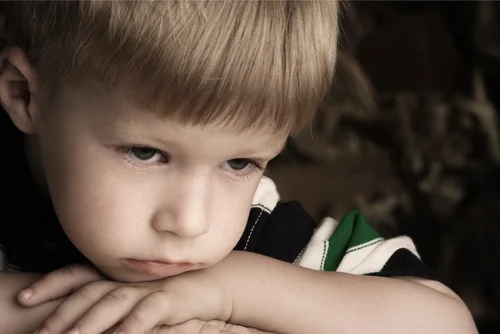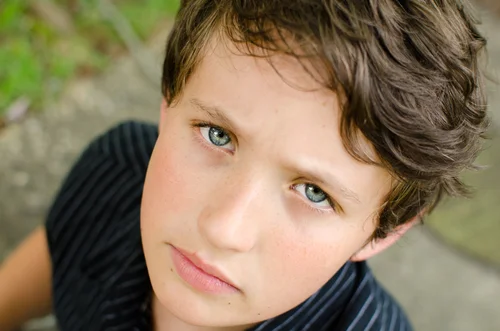What Is The Number One Parenting Error?
/By Joseph Sacks, LCSW
The number one parenting error is too much criticism!
Unfortunately, even so-called “constructive criticism” usually does more harm than good. The logic behind such criticism is that if the parent perceives that the child is making mistakes and behaving inappropriately, simply pointing out his mistakes or poor character traits will alert the child to the problem so she will take the information to heart and correct the error in the future. The parent has good and noble intentions for the benefit of his child. However we must remember there is content (and intention) and there is process. The content and the intention that the child needs to be corrected may be good, but it's the process, the way we go about it through criticism, which is unhelpful.
Examples Of Criticism To Avoid
Examples include the sort of ‘why’ questions as:
“Why do you have to fight with everybody?”
“Why can't you be like your brother?”
“Why must you interrupt everybody?”
“Why are you so selfish?”
“Why can't you be quiet?”
“Why are you so disorganized?”
“Why are you so nosy?” and
“Why do you forget everything I tell you?”
What these and most other criticisms have in common is that they attack and insult the child. They evaluate and judge him to be bad and unworthy in various important respects. The child who hears these or any criticism on a regular basis thinks to herself, ‘I am no good.’ This is how low self-esteem is generated. Too much criticism can even generate anxiety disorders! In addition it tends to destroy the bond between parent and child. The parent-child relationship is the most important thing in a child’s life and must be guarded at all costs! Generally, criticism, even with constructive intent, is devastating to children, and must be avoided like the plague.
See my interesting post on the pitfalls of scolding and reprimands, here.
Alternatives To Criticism
So the question is how do we correct the child's errors and lead him on the proper path without the harmful effects of criticism?
One way is to implement techniques developed by educator Haim Ginott. Thus, when attempting to correct the child, we describe the situation, describe our expectations, describe our values and describe our feelings. That is we focus on the objective situation but not on the person or character of the child. ‘Describing’ means simply providing information and allowing the child to himself decide to do the right thing, without attacking, evaluating or ‘putting him down’.
For example if the child is eating all the cookies for herself, and the parent, says “Why are you so selfish?” she attacks and evaluates the child's character. Instead she should give information, as “Everyone needs to get two cookies each.” Describe your values, “In our house we share and think of others.” Express your feelings, “It makes me angry when one child eats all the cookies.” All this corrects the problem while leaving the child's self-esteem as well as the critical parent-child relationship intact.
If a child interrupts, instead of the parent saying, “Why do you always have to interrupt everybody?” which criticizes and insults the child’s character, the parent should describe his expectations, as “I expect you to listen before you speak.” Describe your feelings, “I feel annoyed when you interrupt me.”
Instead of saying, “Why can't you keep quiet!” which makes the child think he's a nuisance, describe “I hear a lot of noise in here,” or “I hear two children shouting.” Describe how you feel, “It hurts my ears to hear so much noise,” or “When children shout so loud it makes me angry!” These are all polite, subtle and indirect ways of conveying the information the child needs to mend his ways.
If a child fights often, if you simply criticize him, as “Why do you have to always fight with everybody,” it just makes him feel bad about himself, as if he's a troublemaker. Instead describe your values, “In our house we use words when were upset at someone, not fists.” Describe your expectations, “I expect you to treat your sister with respect.” Describe your feelings, “It makes me angry when you fight.” In addition ask each party to describe what is bothering him and then restate and summarize it to the other party. You can even write down a list of each one’s grievances and then read it back. This fosters communication which helps them work towards a resolution. Then ask the children to suggest solutions and write them all down, and then let the children pick which solutions they would like to implement. Remember they are much more likely to abide by a decision that they had a hand in making. See my posts on resolving sibling rivalry, here.
If a child is not clean never criticize his person by saying, “You're filthy.” “Why can't you keep clean?” “I can smell you from over here!” Instead describe what you see, “I see a boy with chocolate on his face.” Give information, “The baby wipes are over there.” This not only avoids criticism, but prevents the child from feeling bossed, and makes him more likely to comply and clean up. Describe “I see a child who needs a bath.” Describe your values, “In our house we keep our hands clean.” Give him or her a choice, “Would you like to wash your hands in the kitchen or in the bathroom? What flavor soap would you like to use?”
Reduce Expectations
Certain behaviors need to be tolerated and not corrected, and they will correct themselves on their own as the child grows older. Let's say a child is moving slowly to get dressed, to get ready for school, or is dawdling in walking down the street. We need to understand that children do not have the maturity or self-control to do things hurriedly. Criticizing him, “You are always so slow” will not result in his moving even one bit faster. It will only make the child feel ‘put down’, damage his self-esteem and damage the parent-child relationship. Therefore we need to have patience and to understand that as the child grows older and gains maturity he will learn to move more quickly. In the meantime you can describe your feelings, “It frustrates me when we move so slowly, sometimes we need to try to move quickly.” You can even suggest a race to the corner with the child.
If a child is forgetful don't say, “Why do you forget everything I tell you,” which insults her and harms her self-esteem. Describe how you feel, “I get upset when you forget what I tell you.” Describe your values, “In our house we try to remember important things.” At the same time we need to remember that children are naturally very forgetful. They simply don't have the maturity to remember things very well. Be patient and tolerate a certain amount of age-appropriate forgetfulness. We should expect an eight-year-old to have the memory of an eight-year-old, but not the memory of a nine-year-old. Expecting just a little bit too much from your child may put strain on your relationship and can make him feel badly about himself.
Many errors will correct themselves over time without any need for our intervention or criticism, so we have to do a ‘cost/benefit analysis.’ Since we know that criticism damages the child's self-esteem as well as damages the parent-child relationship, and that lowered self-esteem creates emotional disorders, we should think, ‘is the benefit of possibly correcting his behavior worth that potential loss of self-esteem and emotional health? We also need to consider that very often the child is too upset from the criticism to remember and implement the lesson it was supposed to give. In addition most children simply lack the maturity and self-discipline to assimilate and put into practice that lesson. They are usually left only with its negative effects.
Learn a great secret for getting kids to listen, here.
Please be advised that the above represents a parenting ideal and you should not expect to fulfill it perfectly. So have patience with yourself and try to reduce criticism gradually.
Feel free to peruse the rest of my interesting blog, the specialties on my website, or download one of my informative free reports. If you are facing challenges raising your child, and would like guidance or treatment from a child therapist in lower Manhattan, you may call me at 646-681-1707 for a free 15-minute consultation. I look forward to speaking with you






























